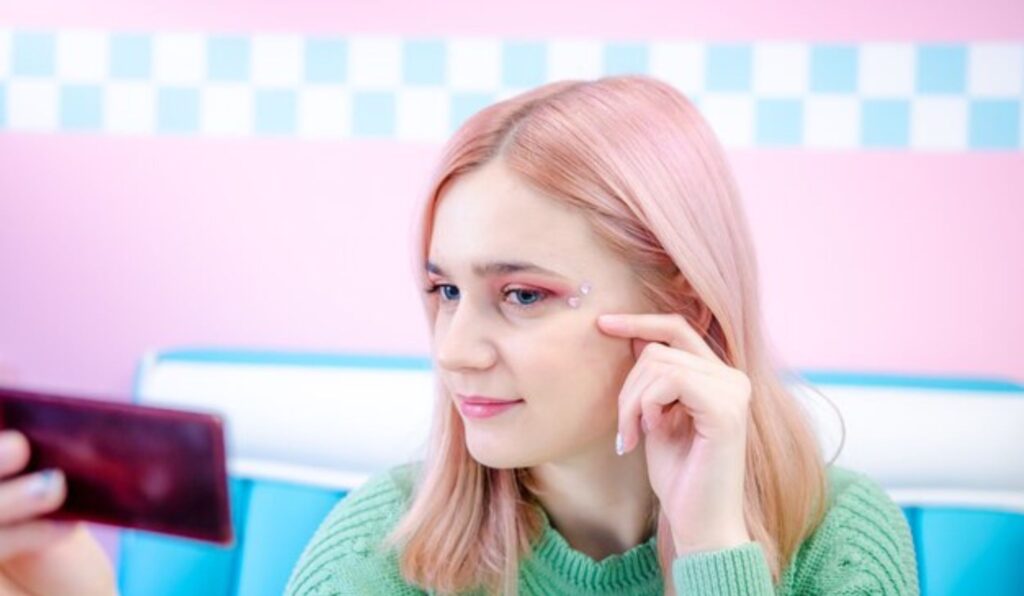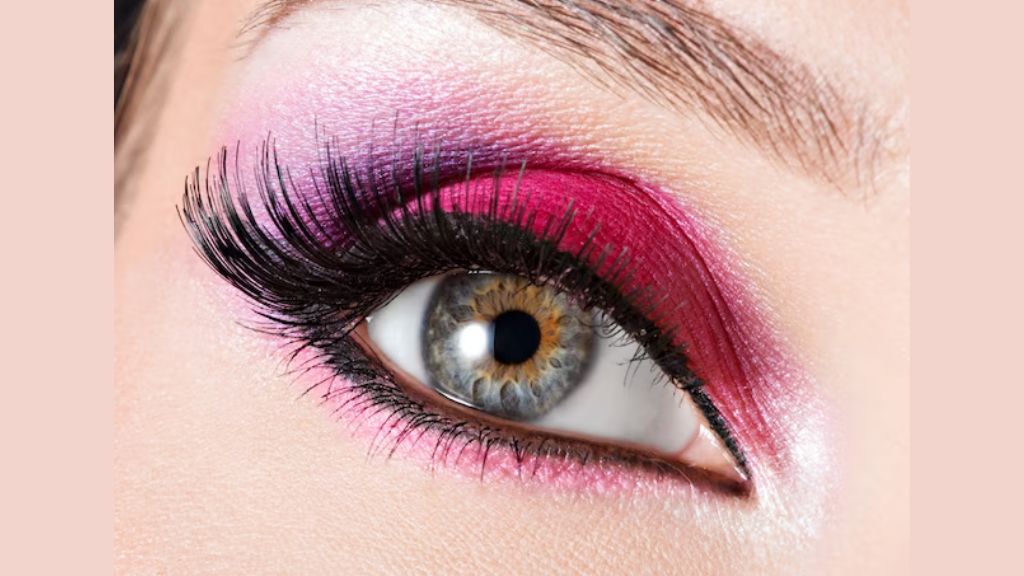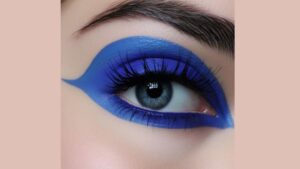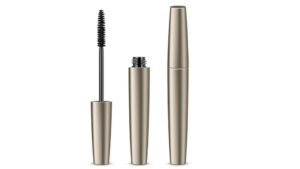Table of Contents
Introduction
Using mascara that has been contaminated or has expired can introduce harmful bacteria to the eye, leading to pink eye. It is important to regularly replace mascara and avoid sharing it with others to minimize the risk of pink eye.
Yes, mascara can cause pink eye if it is contaminated with bacteria or if it is expired. Pink eye, also known as conjunctivitis, is an inflammation of the conjunctiva, the clear tissue that lines the inside of the eyelid and covers the white part of the eye.
Additionally, practicing good hygiene, such as washing hands before applying mascara and removing it before sleeping, can help prevent pink eye.
Understanding Pink Eye And Its Causes
Pink eye, also known as conjunctivitis, is a common eye condition that causes redness, itchiness, and irritation in the eyes. It can affect people of all ages, from infants to adults, and can be caused by various factors such as bacteria, viruses, or allergies. Understanding the different types and causes of pink eye is essential in preventing and treating this uncomfortable condition.
What Is Pink Eye?
Pink eye, or conjunctivitis, is an inflammation of the thin, clear tissue that lines the white part of the eye and the inner surface of the eyelids. This inflammation can be caused by bacteria, viruses, allergies, or other irritants. Pink eye can be highly contagious, spreading easily from person to person, especially in close quarters such as schools or daycare centers.
Types Of Pink Eye
Pink eye can be classified into three main types: bacterial, viral, and allergic.
Bacterial Causes Of Pink Eye
Bacterial pink eye is typically caused by various strains of bacteria, with the most common being Staphylococcus aureus and Streptococcus pneumoniae. It can occur when bacteria enter the eye through various means, such as contaminated hands, makeup, or contact lenses. Bacterial pink eye is often characterized by a yellow or greenish discharge and can be treated with antibiotics prescribed by a healthcare professional.
Viral Causes Of Pink Eye
Viral pink eye is caused by different types of viruses, with adenoviruses being the most common culprit. This type of pink eye is highly contagious and can spread easily through coughing, sneezing, or touching contaminated surfaces. Viral pink eye usually presents with watery discharge, redness, and discomfort, but does not respond to antibiotics. The symptoms may last for a week or longer and may coincide with other respiratory infections.
Allergic Causes Of Pink Eye
Allergic pink eye is an inflammation of the eyes that occurs due to an allergic reaction to substances such as pollen, dust, pet dander, or certain medications. It is non-contagious and can affect both eyes simultaneously. Allergic pink eye is characterized by itching, redness, and tearing, but does not typically produce discharge. Avoiding allergens and using antihistamine eye drops or other prescribed medications can help alleviate the symptoms of allergic pink eye.
How Mascara Can Contribute To Pink Eye

Mascara may contribute to the occurrence of pink eye due to potential bacterial contamination, improper usage, or sharing with others. It is essential to maintain hygiene and follow proper mascara application and removal techniques to minimize the risk.
Mascara is a staple in most women’s beauty routines, helping to achieve long and voluminous lashes. However, it is important to understand that mascara can potentially contribute to the development of pink eye, also known as conjunctivitis. By following proper hygiene practices and using high-quality mascara, you can minimize the risks associated with mascara use.
Can Mascara Cause Pink Eye?
While mascara itself may not directly cause pink eye, it can certainly contribute to its development. Pink eye is commonly caused by the inflammation of the conjunctiva, which is the thin layer that covers the white part of the eye and the inner part of the eyelids. This inflammation can be caused by factors such as viral or bacterial infection, allergies, or irritants like chemicals and foreign substances.
When it comes to mascara, the risk lies in improper usage and poor hygiene practices. Mascara wands can easily become contaminated with bacteria, especially if they come into contact with the eyes, skin, or other surfaces. When you use can mascara cause pink eye, the wand can introduce these bacteria into the eye, increasing the likelihood of developing pink eye.
Risks Associated With Using Mascara
Using mascara that is expired or contaminated can pose risks to eye health. Some potential risks associated with using mascara include:
- The introduction of bacteria, viruses, or allergens into the eye
- Eye irritation and redness
- Inflammation of the conjunctiva
- Eye infections, including pink eye
Lack Of Proper Hygiene And Mascara Use
One of the key factors that can contribute to pink eye is a lack of proper hygiene when using mascara. It is important to follow these hygiene practices to minimize the risk:
- Wash your hands thoroughly before applying mascara
- Do not share mascara with others
- Do not use expired mascara
- Avoid pumping the mascara wand, as this can introduce air and promote bacterial growth
- Replace mascara every three to six months to prevent the buildup of bacteria
Quality Of Mascara And Its Impact On Eye Health
The quality of the mascara you use can also have an impact on your eye health. Lower-quality mascaras may contain harsh chemicals or irritants that can cause allergic reactions or irritation. It is important to choose high-quality mascaras that are hypoallergenic and free from potentially harmful ingredients. Reading reviews and checking for reputable brands can help ensure the mascara you choose is safe for your eyes.
In conclusion, while mascara itself may not directly cause pink eye, improper usage, poor hygiene, and low-quality mascaras can contribute to its development. By following proper hygiene practices and opting for high-quality mascaras, you can minimize the risks associated with mascara use and keep your eyes healthy.
Common Eye Infections To Be Aware Of
When it comes to eye infections, prevention is key. Being aware of common eye infections can help you identify and address any potential issues before they become a bigger problem. In this article, we will discuss four common eye infections that you should be aware of: conjunctivitis, styes, blepharitis, and dry eye syndrome. Understanding the symptoms, causes, and prevention methods associated with each infection can help you keep your eyes healthy and infection-free.
Conjunctivitis: Symptoms, Causes, And Prevention
Conjunctivitis, commonly known as pink eye, is an inflammation of the conjunctiva, the thin membrane that covers the white part of your eye. It can be caused by viruses, bacteria, allergens, or irritants. The symptoms of conjunctivitis include redness, itchiness, excessive tearing, and a gritty feeling in the eyes.
To prevent conjunctivitis, it is important to practice good hygiene. Avoid touching your eyes with dirty hands and wash your hands frequently, especially when you are in contact with others who have pink eye. Avoid sharing personal items such as towels, pillows, and eye makeup to prevent the spread of infection. If you wear contact lenses, make sure to clean and store them properly.
Styes: Causes, Symptoms, And Treatment
A stye is a painful lump that forms on the edge of the eyelid. It is usually caused by an infection in the oil glands of the eyelids. The symptoms of a stye include redness, swelling, tenderness, and a yellowish spot at the center.
To treat a stye, you can apply a warm compress to the affected area several times a day to help reduce inflammation and promote healing. Avoid squeezing or popping the style, as it can lead to further infection. If the stye does not improve within a few days or becomes more painful, it is important to seek medical attention.
Blepharitis: Overview, Symptoms, And Management
| Blepharitis | |
|---|---|
| Overview | Blepharitis is a chronic condition characterized by inflammation of the eyelids. It can be caused by bacterial or fungal infections, allergies, or underlying skin conditions. |
| Symptoms | The symptoms of blepharitis include red and swollen eyelids, itching, burning, and a gritty sensation in the eyes. You may also experience excessive tearing or crusting of the eyelids. |
| Management | Managing blepharitis involves keeping the eyelids clean and free of debris. Warm compresses and gentle eyelid scrubs can help remove any crusts or debris. In some cases, your doctor may prescribe medicated ointments or eye drops to reduce inflammation and control the infection. |
Dry Eye Syndrome: Causes, Symptoms, And Prevention
A. Causes
Dry eye syndrome occurs when your eyes do not produce enough tears or when the tears evaporate too quickly. It can be caused by various factors such as aging, hormonal changes, medications, environmental conditions, and prolonged screen time.
B. Symptoms
The symptoms of dry eye syndrome include dryness, burning, stinging, redness, blurred vision, and sensitivity to light. You may also experience a sensation of having something in your eyes.
C. Prevention
To prevent dry eye syndrome, it is important to take breaks from prolonged screen time and ensure proper lighting and humidity in your environment. Avoid exposure to dry or windy conditions, and consider using artificial tear drops to lubricate your eyes if necessary.
Best Practices For Preventing Eye Infections
Proper mascara usage and hygiene, regular makeup brush and mascara wand cleaning, avoiding sharing eye makeup and tools, and choosing mascara for sensitive eyes are all important practices for preventing eye infections. In this section, we will explore each of these best practices in detail, providing you with valuable tips to keep your eyes healthy and infection-free.
Proper Mascara Usage And Hygiene
When using mascara, it is essential to practice proper hygiene to prevent eye infections. Follow these best practices:
- Wash your hands thoroughly before applying mascara to avoid transferring any bacteria to your eyes.
- Replace your mascara every three months to reduce the risk of bacteria build-up.
- Avoid pumping the mascara wand in and out of the tube, as this can introduce air and promote bacterial growth.
- Never share your mascara with others, as this can lead to the spread of bacteria and eye infections.
Regular Makeup Brush And Mascara Wand Cleaning
Regularly cleaning your makeup brushes and mascara wands is crucial for maintaining good eye hygiene. Here’s how you can effectively clean them:
- Use a gentle brush cleanser or mild soap and lukewarm water to wash your brushes and wands.
- Gently massage the bristles or wand under running water to remove any makeup residue.
- Rinse thoroughly until the water runs clear.
- After cleaning, reshape the bristles or reshape the mascara wand and let them air dry completely before using them again.
Avoiding Sharing Eye Makeup And Tools
Sharing eye makeup and tools, such as brushes and eyelash curlers, can increase the risk of eye infections. To prevent this:
- Avoid sharing your eye makeup products with others, including mascara, eyeshadow, and eyeliner.
- If you need to use someone else’s products or tools in a pinch, make sure to sanitize them thoroughly before and after usage.
- Consider using disposable mascara wands or brushes when sharing makeup with others.
Tips For Choosing Mascara For Sensitive Eyes
If you have sensitive eyes, selecting the right mascara can make a significant difference in preventing eye infections. Keep these tips in mind:
- Look for mascaras that are labeled “hypoallergenic” or “sensitive eyes” to minimize the risk of irritation.
- Choose mascaras that are fragrance-free and ophthalmologist-tested.
- Opt for water-based formulas instead of oil-based ones to reduce the likelihood of clogging your eyelash follicles.
- Avoid mascaras with fibers or glitter if you find them irritating to your eyes.
Treatment Options For Eye Infections

Eye infections can be caused by various factors, and mascara is one of them. It is essential to take proper treatment options to manage eye infections effectively.
When it comes to treating eye infections, especially those caused by makeup like mascara, prompt action is essential to prevent further complications. While some minor infections can be treated with over-the-counter remedies, more severe infections may require professional medical help and prescription medications. In this section, we will explore the different treatment options available for eye infections, helping you find the best solution for your needs.
Over-the-counter Remedies And Medications
If you are experiencing mild symptoms of an eye infection, such as redness, itching, or irritation, over-the-counter remedies can provide some relief. These non-prescription options are easily accessible and can help alleviate discomfort. Some popular over-the-counter treatments for eye infections include:
- Artificial tears: These lubricating eye drops can soothe dryness and irritation, reducing redness and discomfort.
- Antihistamine eye drops: If your eye infection is caused by an allergic reaction, these drops can help relieve itching and other allergy symptoms.
- Ointments: Antibiotic ointments can be applied to the affected area to fight bacterial infections and promote healing.
When using over-the-counter remedies, it’s important to carefully follow the instructions provided and monitor your symptoms. If your condition worsens or persists after a few days, it may be time to seek professional medical help.
When To Seek Professional Medical Help
While mild eye infections can often be treated at home, certain symptoms may indicate the need for professional medical attention. If you experience any of the following, it’s crucial to seek immediate help from an eye care specialist:
- Severe pain in the eye or surrounding areas
- Blurred vision or sudden loss of vision
- Increase in redness, swelling, or discharge
- Sensitivity to light
- Eye trauma or injury
A healthcare professional will be able to properly diagnose and prescribe the most appropriate treatment for your eye infection. Early intervention can prevent the infection from spreading and potentially causing more serious complications.
Prescription Medications And Treatments For Severe Infections
For severe eye infections or cases that do not respond to over-the-counter remedies, prescription medications, and treatments may be necessary. These stronger interventions require a doctor’s prescription and should be used under their supervision. Some common prescription options include:
- Antibiotic eye drops or ointments: These medications are specifically formulated to target and eradicate the bacterial source of the infection.
- Oral antibiotics: In cases of more severe or systemic infections, a doctor may prescribe oral antibiotics to eliminate the infection from within the body.
- Steroid eye drops: These drops can help reduce inflammation and relieve symptoms associated with certain types of eye infections.
It’s important to strictly follow the instructions provided by your healthcare professional when using prescription medications. Failure to complete the full course of treatment or misuse of these medications can result in antibiotic resistance or recurrence of the infection.
Remember, each eye infection is unique, and the appropriate treatment will vary depending on the specific cause and severity of the infection. Consulting with a healthcare professional is crucial to ensure proper diagnosis and treatment, promoting a speedy recovery and minimizing the risk of complications.

FAQ: Can Mascara Cause Pink Eye
Can You Get Pink Eye From Mascara In Your Eye?
Yes, you can get pink eye from mascara in your eye, as it may contain harmful bacteria.
Can Leaving Mascara On Overnight Cause Pink Eye?
Leaving mascara on overnight can potentially cause pink eye due to the bacteria that can accumulate on the wand.
Can Pink Eye Bacteria Live In Mascara?
Yes, pink eye bacteria can survive in mascara due to the moist environment and contact with the eyes.
Do I Have To Throw Away My Mascara After Pink Eye?
Yes, it is recommended to throw away your mascara after having pink eye. Pink eye is contagious, and using the same mascara can lead to reinfection.
Conclusion
Ultimately, it is important to consider the potential risks associated with using mascara and the potential for developing pink eye. While the risk is relatively low, it is still crucial to prioritize good hygiene practices when it comes to eye makeup.
By regularly cleaning applicators, discarding expired products, and avoiding sharing mascara, you can minimize the risk of contracting pink eye. Remember, prevention is better than cure.



